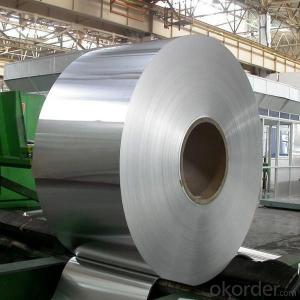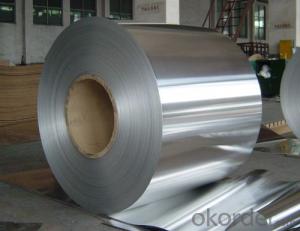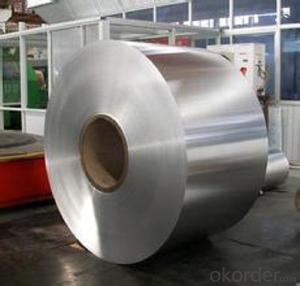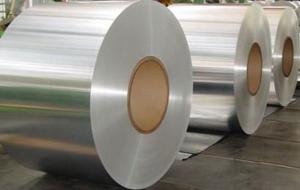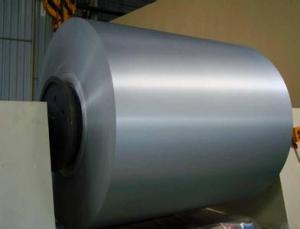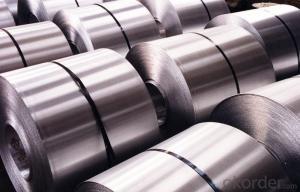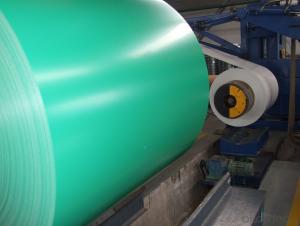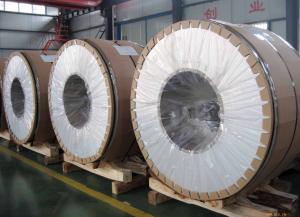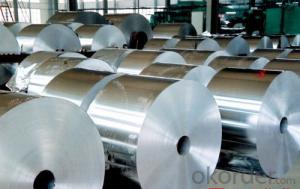Customized Anodized Aluminum Coil for Coating ACP Coil 1xxx 3xxx 5xxx
- Loading Port:
- Shanghai
- Payment Terms:
- TT OR LC
- Min Order Qty:
- 5 m.t.
- Supply Capability:
- 1000 m.t./month
OKorder Service Pledge
OKorder Financial Service
You Might Also Like
Specification
Aluminum Coil for Coating ACP Coil 1XXX 3XXX 5XXX
1.Structure of Aluminum Coil for Coating ACP Coil 1XXX 3XXX 5XXX
Aluminum Sheets are strengthened and cut from raw materials with different alloys, such as AA5005, AA5052, etc. They are easy for processing in different shapes, good in intensity and can be quickly installed. Aluminium Sheets for Energy Saving Curtain Walls are good in energy saving, weather resistance, fire resistance, easy for maintenance and with many colors.
Aluminium Sheets for Energy Saving Curtain Walls are widely used in construction of metal walls, metal ceilings, car decoration, advertizing panels, etc.
2.Main Features of Aluminum Coil for Coating ACP Coil 1XXX 3XXX 5XXX
•High intensity
•Easy to be processed and shaped
•Weather resistance
•Anti-pollution & environment protection
3. Aluminum Coil for Coating ACP Coil 1XXX 3XXX 5XXX Images
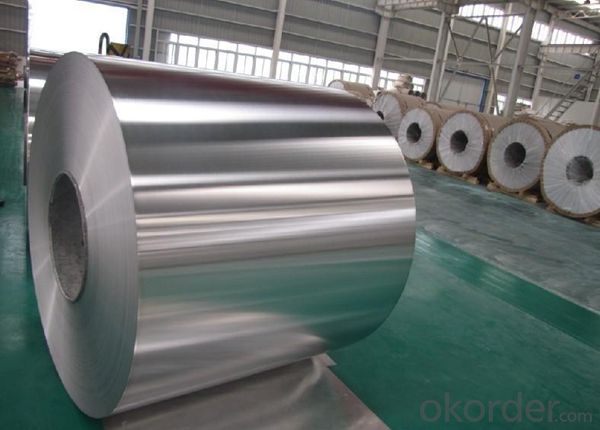
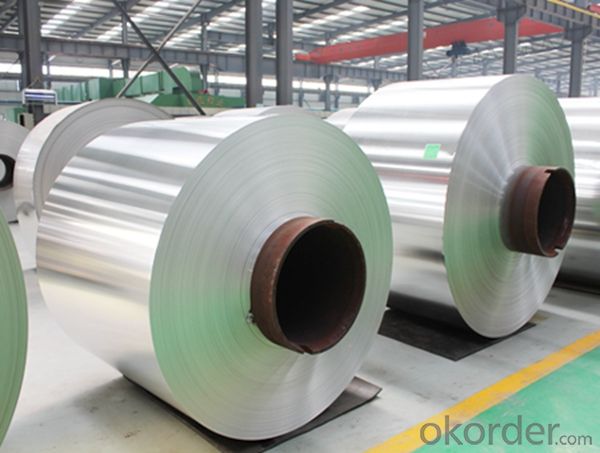
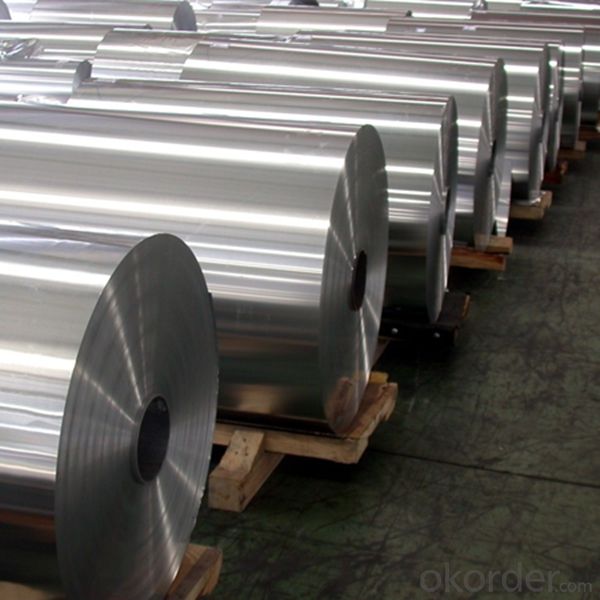
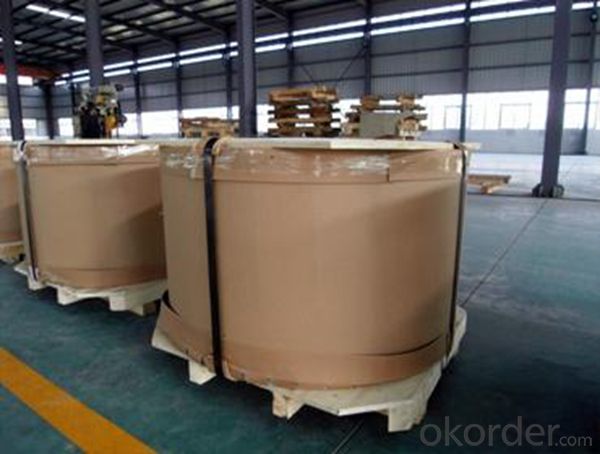
4.Specification of Aluminum Coil for Coating ACP Coil 1XXX 3XXX 5XXX
Alloy Number | AA5XXX 1XXX 3XXX |
Temper | H12, H14, H16, H18, H22, H24, H26, H32, HO, F |
Thickness | 0.1mm – 500mm |
Width | 10mm- 2200mm |
Standard | GB/T3880-2006, ASTM, ISO, EU standard |
5.FAQ of Aluminum Coil for Coating ACP Coil 1XXX 3XXX 5XXX
A.What about inspections to guarantee quality?
For each order for Aluminum Sheets with Mill Finished Surface AA5XXX, we will arrange strict inspection for raw materials, inspection during production and inspection for finished goods.
With requirement of customers, we also can arrange the third party inspection.
B.What about delivery?
We will put order for Aluminum Sheets with Mill Finished Surface AA5XXX in production schedule after order gets confirmed against copy of TT or L/C. Normally it takes about one month for production. Exact shipment schedule is different based on different sizes and quantity.
C.What is the MOQ?
5 tons for each size.
D. Where have you exported aluminium sheets?
We have exported aluminum sheets to many countries. Main markets include South East Asia, Middle East, North America, South America, etc.
- Q: Can aluminum coils be used in solar panel installations?
- Yes, aluminum coils can be used in solar panel installations. Aluminum is a popular material choice due to its lightweight, corrosion resistance, and excellent thermal conductivity. It is commonly used for manufacturing solar panel frames and mounting systems, providing durability and cost-effectiveness in solar installations.
- Q: What is the maximum coil weight for aluminum coils?
- The maximum weight of aluminum coils can differ due to several factors including coil thickness, width, and the specific alloy employed. Typically, the maximum weight for aluminum coils falls within the range of 5,000 to 25,000 pounds. Nevertheless, it is crucial to acknowledge that these figures are only approximate and may vary based on the manufacturer's guidelines and the capabilities of the equipment. Moreover, it is advisable to consult the manufacturer or supplier in order to ascertain the specific limitations on coil weight to guarantee safe handling and transportation.
- Q: How are aluminum coils processed to achieve desired mechanical properties?
- Various techniques are employed to process aluminum coils in order to attain the desired mechanical properties. One method commonly utilized is known as annealing, wherein the coils are heated to a specific temperature and then gradually cooled. This particular process aids in reducing internal stresses and enhancing the metal's ductility and toughness. Another significant procedure is cold rolling, whereby the coils are passed through a series of rollers at room temperature to decrease their thickness and improve their mechanical properties. Not only does this technique bolster the aluminum's strength, but it also enhances its surface finish. To further augment the mechanical properties, aluminum coils can also undergo alloying. This involves blending the aluminum with other elements such as copper, manganese, or magnesium to form specific alloys. These alloys provide superior strength, corrosion resistance, and other desirable properties. Furthermore, heat treatments like precipitation hardening can be applied to aluminum coils. This process necessitates heating the coils to a specific temperature and maintaining them at that level for a certain duration, followed by rapid cooling. Precipitation hardening enables the formation of fine particles in the metal's microstructure, thereby increasing its strength and hardness. Lastly, surface treatments like anodizing or painting can be employed on aluminum coils to enhance their mechanical properties. Anodizing creates a protective oxide layer on the surface, improving corrosion resistance, while painting offers additional protection and aesthetic appeal. In conclusion, aluminum coils are subjected to various techniques including annealing, cold rolling, alloying, heat treatments, and surface treatments to achieve the desired mechanical properties. These processes serve to enhance the aluminum's strength, ductility, toughness, and corrosion resistance, rendering it suitable for a wide array of applications.
- Q: What is the average lifespan of aluminum coils?
- The average lifespan of aluminum coils can vary depending on various factors such as usage, maintenance, and environmental conditions. However, with proper care and maintenance, aluminum coils can typically last for 15 to 20 years or more.
- Q: How do aluminum coils contribute to energy efficiency in buildings?
- Aluminum coils contribute to energy efficiency in buildings by improving the heating and cooling systems. These coils are commonly used in HVAC systems, where they help in transferring heat effectively. The high thermal conductivity of aluminum allows for faster heat transfer, resulting in more efficient cooling and heating processes. Additionally, aluminum coils are lightweight and corrosion-resistant, reducing the load on the HVAC system and ensuring its longevity. Overall, the use of aluminum coils in buildings helps to conserve energy and reduce utility costs.
- Q: Is it possible to utilize recycled aluminum coils for a project instead of purchasing new ones?
- <p>Yes, you can use recycled aluminum coils in your next project instead of buying new ones. Recycled aluminum is environmentally friendly and often more cost-effective. It maintains the same properties as new aluminum, making it suitable for various applications. Ensure the recycled coils meet the quality standards required for your project. Check for any impurities or damage that might affect performance. Using recycled materials not only reduces waste but also conserves resources.</p>
- Q: This question is asking for methods or strategies to protect aluminum coils from rusting.
- <p>To prevent aluminum coil from rusting, it's important to understand that aluminum doesn't rust like iron does; it forms a protective oxide layer that prevents further corrosion. However, to maintain the integrity of the aluminum coil and prevent other forms of degradation, you can: 1. Store the coils in a dry environment to avoid moisture-induced corrosion. 2. Apply a protective coating or lacquer to the surface. 3. Use anti-corrosion packaging materials during transportation and storage. 4. Regularly inspect the coils for any signs of damage or corrosion and address them promptly. 5. Avoid contact with aggressive chemicals that can break down the protective oxide layer. Proper handling and storage are key to maintaining the quality of aluminum coils.</p>
- Q: The user is asking if it's safe to use aluminum coil for food preparation in a microwave oven.
- <p>No, you should not use aluminum coil for food preparation in a microwave oven. Aluminum is a metal and can cause sparks or even a fire when exposed to the microwave's electromagnetic field. It can also reflect microwaves, potentially damaging the oven. Always use microwave-safe materials such as glass, ceramic, or microwave-safe plastic containers for food preparation in a microwave.</p>
- Q: I have heard that aluminum may be a contributing agent in causing Alzheimer's disease, and that if we drink from aluminum cans, that we get aluminum into our system from them. It seems like this would be pretty easy to test in a laboratory, whether or not there are aluminum particles in the contained beverage. But I have heard or read that the inside of the cans are coated with something. So is this just typical uninformed rumors from the Internets, or is there anything to it? Hate to sound rude, but I am not really interested in opinions, like Well I don't think they would sell them if... or Oh yes, I think you get lots of aluminum from it. I am only interested in facts, not gut feelings or opinions.
- It's a fact that the cola industry controls us through microchips floating in their drinks
Send your message to us
Customized Anodized Aluminum Coil for Coating ACP Coil 1xxx 3xxx 5xxx
- Loading Port:
- Shanghai
- Payment Terms:
- TT OR LC
- Min Order Qty:
- 5 m.t.
- Supply Capability:
- 1000 m.t./month
OKorder Service Pledge
OKorder Financial Service
Similar products
Hot products
Hot Searches
Related keywords
